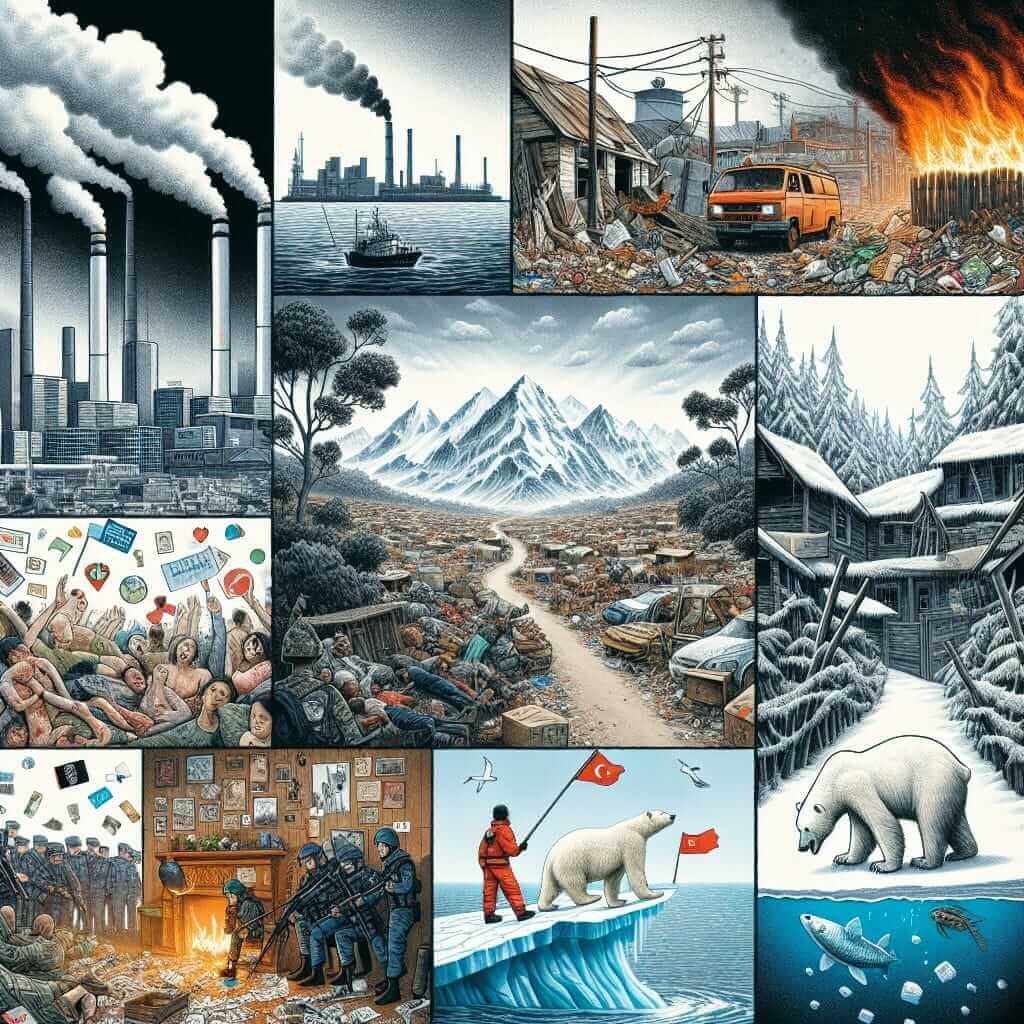As an experienced IELTS instructor, I often encounter students who feel daunted by open-ended questions, particularly those asking about global issues. One such question is, “What are some of the challenges facing society today?”. This question can appear daunting, but with a strategic approach, you can craft a compelling and high-scoring response. This article will equip you with the necessary tools and techniques to confidently tackle this question in your IELTS Speaking test and beyond.
Understanding the Question
Before diving into crafting your response, it’s crucial to understand what the examiner is looking for. This question aims to assess:
- Your knowledge of current affairs: Demonstrating awareness of the issues impacting the world today.
- Your ability to articulate complex ideas: Clearly and concisely explaining your chosen challenges.
- Your vocabulary range: Employing a diverse vocabulary related to social issues.
- Your grammatical accuracy: Using correct grammar throughout your response.
Identifying Key Challenges
The beauty of this question lies in its open-ended nature. You have the freedom to discuss challenges that resonate with you. However, selecting challenges with real-world relevance and supporting your choices with concrete examples is important. Here are a few examples:
- Climate Change: Rising global temperatures, extreme weather events, and their impact on ecosystems and human populations.
- Economic Inequality: The widening gap between the rich and poor, leading to social unrest and limited access to opportunities.
- Access to Education: Barriers to quality education, especially in developing countries, hindering personal growth and societal progress.
- Technological Advancements: While beneficial, rapid technological advancements raise ethical concerns about privacy, job displacement, and the digital divide.
- Aging Population: Increased life expectancy placing a strain on healthcare systems, pension funds, and social support networks.

Structuring Your Response
A well-structured response is crucial for clarity and coherence. Consider using the following framework:
-
Introduction: Briefly acknowledge the question and state your chosen challenges.
- Example: “Our world today faces numerous challenges, but I believe two of the most pressing are climate change and economic inequality.”
-
Body Paragraphs: Devote one paragraph to each challenge. Provide a definition, explain its significance, and offer examples.
- Example (Climate Change): “Climate change, with its rising temperatures and extreme weather events, poses a severe threat to our planet. The increased frequency of natural disasters, such as hurricanes and droughts, disrupts ecosystems, displaces communities, and jeopardizes food security. For instance, the recent wildfires in Australia highlight the devastating impact of climate change on biodiversity and human lives.”
- Example (Economic Inequality): “Economic inequality is another major challenge, creating a stark divide between the wealthy and the underprivileged. This gap limits access to education, healthcare, and economic opportunities, perpetuating cycles of poverty. The growing number of homeless people in major cities worldwide is a clear indication of this disparity.”
-
Conclusion: Briefly summarize your points and offer a concluding thought.
- Example: “In conclusion, climate change and economic inequality present formidable challenges for our society. Addressing these issues requires global cooperation, innovative solutions, and a commitment to creating a more sustainable and equitable future for all.”
Vocabulary Enhancement
Using a diverse vocabulary related to social issues is key to achieving a high score. Consider incorporating words and phrases such as:
- Global Issues: Pressing concerns, critical challenges, worldwide problems.
- Impact: Consequences, implications, effects.
- Solutions: Remedies, answers, measures.
- Sustainability: Environmental balance, ecological responsibility.
- Equality: Social justice, fairness, equal opportunities.
IELTS Speaking Test Application
In the IELTS Speaking test, you might encounter this question in Part 3, where the examiner assesses your ability to discuss abstract ideas. Remember to:
- Stay calm and composed: Take a moment to gather your thoughts before speaking.
- Maintain eye contact and clear pronunciation.
- Support your ideas with relevant examples.
- Use a range of vocabulary and grammatical structures.
- Don’t be afraid to express your opinion.
Common Mistakes to Avoid
- Providing a laundry list of challenges without elaboration.
- Using vague language and lacking specific examples.
- Focusing solely on personal challenges rather than societal ones.
- Memorizing responses; aim for natural and spontaneous answers.
Practicing for Success
To effectively answer “What are some of the challenges facing society today?” questions:
- Stay updated on current events: Read newspapers, watch documentaries, and engage in discussions about global issues.
- Practice brainstorming challenges: Create a list of challenges and practice explaining their significance.
- Record your responses: Listen back to identify areas for improvement in fluency, vocabulary, and grammar.
Conclusion
Mastering the art of discussing global challenges is an invaluable skill that extends beyond the IELTS exam. By understanding the question’s requirements, structuring your response effectively, and continually expanding your vocabulary and knowledge, you’ll be well-equipped to tackle this question and impress your examiner. Remember, practice makes perfect, so continue to engage with these topics and refine your responses.